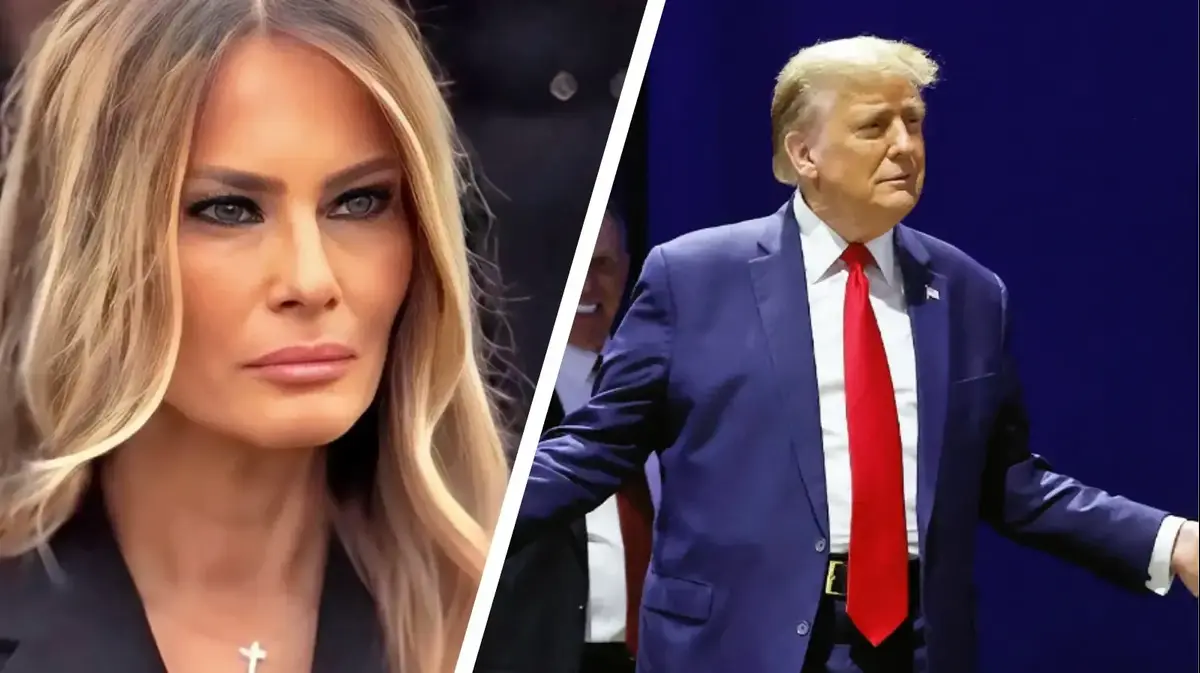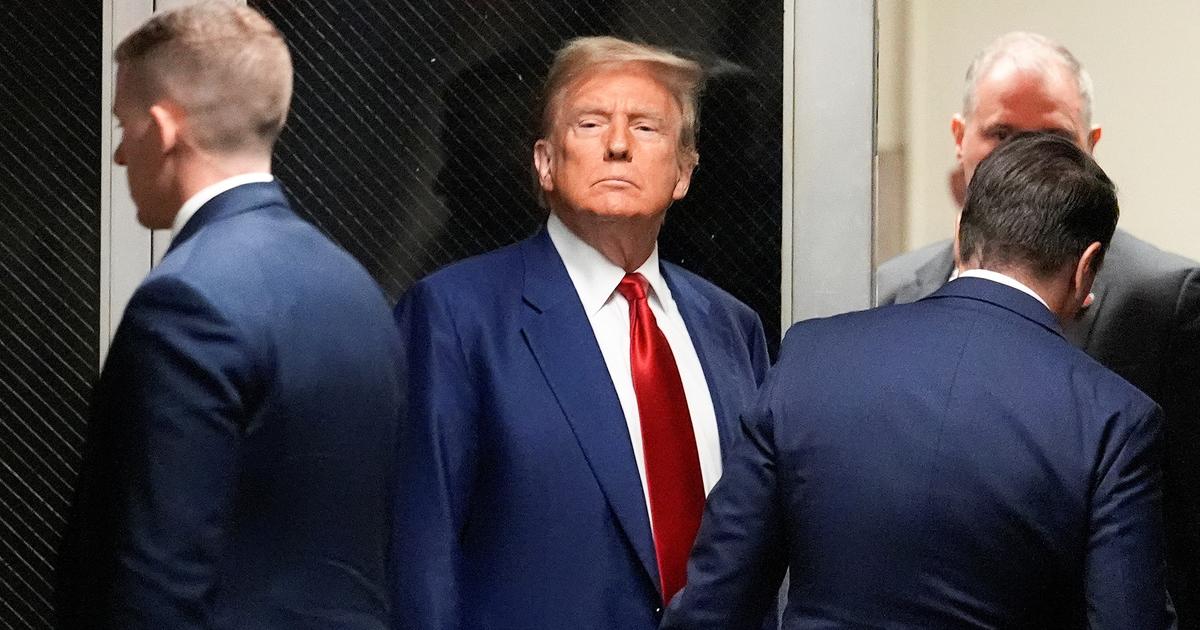Icon: enlarge
French President Emmanuel Macron, German Chancellor Angela Merkel and US President Donald Trump (in December 2019)
Photo: CHRISTIAN HARTMANN / AFP
Every US president in the past 20 years started with a foreign policy project: After the attacks of September 11, 2001, George W. Bush's term of office was dominated by confrontation with Islamic countries.
Under his leadership, the US wanted to lead the world towards democracy and a market economy - and experienced a disaster in Iraq and Afghanistan.
Barack Obama's successor tried to defuse this conflict;
He campaigned for the two-state solution between Israelis and Palestinians and found conciliatory words in his speech to the Islamic world on June 4, 2009 in Cairo.
Under Obama, the focus of American foreign policy shifted to the Pacific region.
And Donald Trump?
Trump started with the slogan "America First".
With a view to foreign and security policy, this meant for him above all: to question a number of international treaties or memberships in international organizations, which he claimed were "unfair" and only disadvantageous for the USA.
His foreign policy over the past four years seems erratic.
In fact, he polemicizes against NATO and other international organizations, especially the UN.
He canceled the Paris climate agreement, as well as the nuclear deal with Iran.
He spoke to Brexit;
his "peace plan" for Israel is a slap in the face of the Palestinians.
He gave the "dealmaker" without getting any deal through.
Trump shook hands with dictator Kim Jong Un - but without somehow getting the question of the North Korean nuclear program under control.
He started a trade war with China.
And now he is offended: "China wants to get rid of me. Iran wants to get rid of me. Germany wants to get rid of me," said Trump during an election campaign appearance.
But it's not that easy.
With what expectations or fears do the European Union, the Middle East and Iran, Latin America, Russia and China view the election in the United States?
Are you hoping for Joe Biden as the new president or do you want another four years?
European Union: bad premonitions
In Brussels, the motto before the election is: wait and hope for the best.
From the EU's point of view, this would be a victory for Joe Biden, which is so clear that there will be no constitutional crisis.
The horror scenario, on the other hand, is that Trump will rule for four more years in which he could detach the US from NATO and start a trade war with the EU.
According to officials, there are currently no concrete strategies for reacting to the outcome of the US election - and a possible constitutional crisis - in the EU Commission.
Even among the EU foreign ministers this is "not an issue, at least officially," says one of them.
The Brussels caution is also evident in trade.
In mid-October, the World Trade Organization (WTO) granted the EU permission to impose punitive tariffs on imports from the USA - because of the subsidies to the aircraft manufacturer Boeing.
The EU could also use it to return the favor for tariffs that the US has been levying for some time because of EU subsidies for Boeing's competitor Airbus.
France, for example, demanded that this counter-attack be carried out immediately.
Others, above all Germany, slowed down - and have been able to prevail so far: Brussels is keeping quiet and waiting for the outcome of the election.
Icon: enlarge
Anti-Trump protests in Iran's capital Tehran (May 2018)
Photo: TASNIM NEWS AGENCY / REUTERS
Middle East and Iran: waiting for Biden
In the Near and Middle East, the US presidential election is closely followed, after all, the result can have a direct impact on everyday life - especially in Iran: In an opinion poll there, for example, 55 percent said that the US election said their country was "very strong" will concern.
A re-election of Trump would mean a continuation of his "maximum pressure" policy.
The US sanctions have massively damaged Iran's economy, for example, they ensure that sick Iranians can hardly get their medication or that younger people are unable to study in the USA.
Biden, on the other hand, has indicated that he may be ready to return to the international nuclear deal.
Iran is said to have even tried to manipulate the election in favor of Joe Biden.
John Ratcliffe, the head of the US secret service, accused the Iranian revolutionary guard in October of being behind emails threatening American voters with violence if they do not vote for Trump.
Icon: enlarge
Dance with a Sword: Trump in Saudi Arabia (May 2017)
Photo: JONATHAN ERNST / REUTERS
There is also a lot at stake for some Arab countries: the authoritarian rulers of Egypt, Saudi Arabia and the United Arab Emirates (UAE) could do almost whatever they wanted under Trump;
he supported them in any case.
Under Biden, they would have to expect more criticism from the White House.
One of Trump's few foreign policy successes is that the UAE and Bahrain recently cleaned up their relations with Israel.
The US elections are a constant topic in the region's media.
In addition to its correspondents in the USA, the Arab television broadcaster Al Jazeera hired guest commentators for the time of the election campaign, for example the Egyptian-born American Jasmine El-Gamal, who worked under President Barack Obama in the US State Department on the Middle East and now for Al Jazeera commented on the debates of the candidates.
Above all, the news channel is also dedicated to the question of whether there will be violence after the election in the world's model democracy.
Icon: enlarge
Trump with Brazil's President Jair Bolsonaro: They are close
Photo: TOM BRENNER / REUTERS
Mexico and Brazil: hope to be re-elected
Mexico's left-wing nationalist President Andrés Manuel López Obrador and his right-wing populist counterpart Jair Bolsonaro in Brazil embody the political poles of Latin America.
But they all agree on one thing: Both hope that Donald Trump will be re-elected.
With Bolsonaro, this wish is hardly surprising: Trump is his idol, both maintain a similar political style and are politically close.
Bolsonaro has therefore publicly spoken out in favor of Trump's re-election several times.
A Biden victory would have serious consequences for Brazil: Politically, Bolsonaro would be largely isolated on the continent, and Washington would exert considerable pressure on Brasilia in terms of environmental and trade policy to stop the deforestation of the Amazon jungle.
Biden has already indicated that.
Icon: enlarge
Poster against Trump's migration policy in Tijuana, Mexico
Photo: GUILLERMO ARIAS / AFP
In Mexico, migration, trade and energy policy is the main issue: López Obrador has given in to Trump's pressure and turned Mexico into a bulwark against migrants from the south.
This turnaround is due to the insight that Mexico has little to counter Washington's threats; it is economically dependent on the USA.
Biden has announced that he would correct Trump's migration policy: He wants to stop the construction of the border wall and pump four billion dollars into the economy of the poor Central American nations, which make up the majority of migrants.
With both projects he can count on the support of the Mexican government.
In trade policy, however, the Left López Obrador would probably have problems with Biden: The Democrats have only half-heartedly approved the new North American free trade agreement, which Trump and López Obrador have celebrated as a great success, and would like to improve many details.
Most controversies, however, are likely to be in energy and environmental policy: López Obrador relies on fossil fuels; he sees Mexico's state oil industry as the key to economic development.
Biden, on the other hand, wants to promote the conversion of the US economy to clean energies.
In the long term, this will lead to a reduction in oil imports from Mexico.
Cooperation in the drug war, however, should continue.
However, it is likely that Biden will insist more on respect for human rights - like other Democratic presidents before him.
Icon: enlarge
Trump and Putin in November 2017
Photo: Jorge Silva / dpa
Russia: relations at rock bottom
What had they not hoped for in Moscow from Trump's presidency: Some people dreamed of a summit of presidents - Vladimir Putin with Trump;
There has already been talk of a Yalta 2 conference at which the two deals would be concluded.
Four years later, relationships are at a rock bottom.
Under Trump, Washington imposed further economic sanctions on Moscow, thereby endangering the prestigious Nord Stream 2 project and terminating the INF treaty on nuclear disarmament.
Trump is seen in Moscow as unpredictable and weak, trapped in his struggles with the US elite.
That would hardly change in a second term.
On the plus side, the Russian leadership records that Trump has weakened NATO and Western unity with his policy, hardly interfering in the post-Soviet area, but also little in Syria and Libya.
This allows the Kremlin to act more freely.
In addition, Trump is holding back from criticizing the Russian leadership.
Icon: enlarge
Kremlin chief Vladimir Putin and Trump: no deal struck
Photo: MAXIM ZMEYEV / AFP
That would also be different with a President Biden.
He had already found clear words during the election campaign, for example about the poisoning of the oppositionist Alexej Navalny.
The Kremlin knows what an "ideologist" like Biden means: more confrontation.
On the other hand, the democrat is seen as better assessable.
Biden's pragmatism, at least in the area of arms control, gives Moscow some hope; he wants to extend the New Start Agreement.
In any case, Moscow is behaving conspicuously cautiously: There are no discrediting campaigns against Biden like the one against Hillary Clinton in 2016.
Icon: enlarge
China's head of state Xi Jinping and Trump in Beijing (November 2017)
Photo: DAMIR SAGOLJ / REUTERS
China: Biden?
Or maybe Trump?
With no other country have America's relations worsened under President Trump as with China: trade war, Hong Kong, Huawei, the island dispute in the South China Sea, Beijing's suppression of the Muslim Uyghur minority - the number of conflicts has multiplied.
One might assume that China's leadership would prefer an election victory for the more moderate Biden, especially since Biden and China's head of state Xi Jinping have known each other for a long time.
But it's not that easy.
First, Biden shares many of Trump's criticisms of China, and his stance is even more resolute on human rights issues.
And secondly, in contrast to Trump, Biden is an alliance politician and has announced that he will mobilize America's alliances against China - the alliance with Europe on economic issues, the alliances with Asian US partners on military issues.
Trump not only snubbed Beijing, but also his own allies for four years by always following his motto: "America First".
China benefited from this geopolitically and expanded its influence.
A Biden election victory could in the short term take the edge off the conflict between the two superpowers.
In the long term, Biden is likely to be the more dangerous opponent for China.
Icon: The mirror








